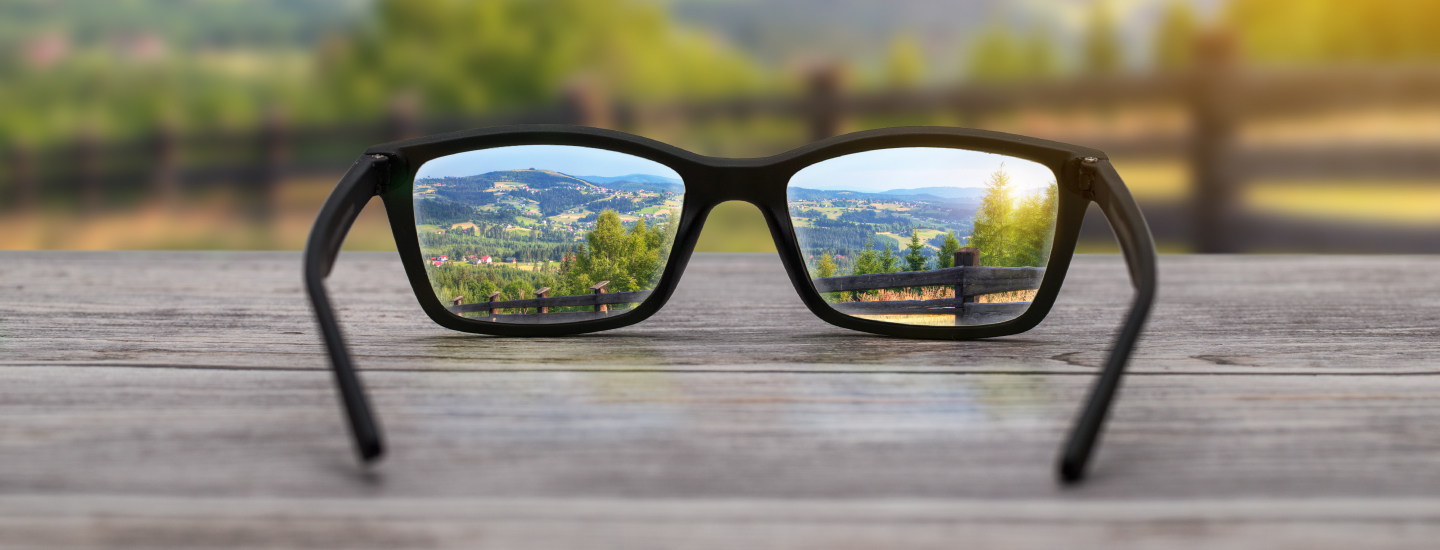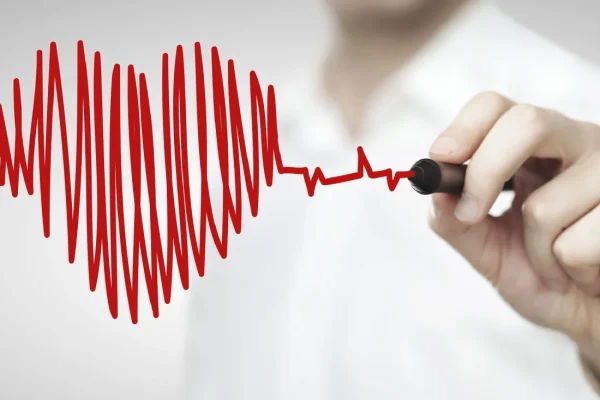
05 Nov How well can you see?
How well can you see?
By Island Hospital | Nov 5, 2019 1:44:57 PM
Are you having a hard time reading your computer screen? Do street signs and addresses look blurry?
If you can see things clearly when they are close to you, but the sharpness of the images fade when the item moves away from your face, you are dealing with short-sightedness, also known as myopia. It is a common condition that often develops during childhood and worsens through middle age.
“Myopia just might be one of the most common conditions in the world today.”
Myopia, or “short-sightedness,” as most of us refer to it, is a common eye condition that results in seeing objects up close clearly but objects further away blurry.
This condition is fairly common and many people who have it do not detect it immediately, as all objects in view are not always blurry.
You might be able to read a book without any problems, but the TV across the room appears blurry to you? It may lack visual clarity.
In order to see images clearly, the light that enters your eye must coalesce into one sharp point at the back of your eye. The retina on the back of the eye can translate that sharp point of light into an electrical signal, and it’s that signal that moves through the optic nerve to the brain.
Short-sightedness is when light entering the eye is focused incorrectly. This makes distant objects appear blurred. Short-sightedness is a type of refractive error of the eye.

Short-sightedness affects males and females equally. People who have a family history of short-sightedness are more likely to develop it. Most eyes with short-sightedness are healthy. However, but a small number of people with severe short-sightedness develop a form of retinal degeneration.
“Many people confuse short-sightedness with long sightedness. Short-sightedness does not affect your close-up vision, but it does affect your ability to see objects further away properly.”
A short-sighted person sees close-up objects clearly, but objects in the distance are blurred.
Short-sightedness is often first noticed in school-aged children or teenagers. Children often cannot read the blackboard, but they can easily read a book.
Short-sightedness gets worse during the growth years. People who are short-sighted need to change glasses or contact lenses often. Short-sightedness most often stops progressing as a person stops growing in his or her early twenties.
You may be short-sighted if:
- you have difficulty seeing objects in the distance
- objects in the distance appear blurry
- you need to squint or partially close your eyes to see clearly
- you suffer from frequent headaches and tired eyes from over-straining them.
- you have difficulty seeing while driving and have trouble reading road signs, especially at night.
Short-sightedness can vary in severity. For some people, the issue is a mere annoyance because short sightedness may make it difficult to recognise faces at a distance. They may be able to see well enough to handle everyday tasks, such as housecleaning or gardening, but they may need to wear corrective lenses in order to drive because driving can become more difficult too. Some people have severe forms of myopia in which they cannot see clearly enough without lenses to do anything at all.
What causes short-sightedness, you ask? Myopia, or short-sightedness, occurs when the eye grows too long from front to back. Instead of focusing images on the retina, like individuals without myopia experience, the lens of the eye focuses the image in front of the retina. This results in blurry vision for all objects that are further away. In addition, short-sightedness can be the result of the eye’s outermost layer, the cornea. Typically, the cornea could be too curved for the length of the eyeball or a lens that is too thick. Keep in mind; this is the opposite effect of being farsighted. When an individual is dealing with symptoms of farsightedness, all objects that are further away are in focus and nearby objects are blurry.
The causes of short-sightedness are unknown at this moment. Many people with myopia develop it at a young age, with it worsening each year until they reach their early twenties. Myopia is believed to be an inherited condition, so you are more likely to be short sighted if one or both of your parents are short sighted too.
Short-sightedness may also be related to environmental factors. Children who spend a lot of time focusing on near objects, for example, reading or watching a computer screen, may have a greater chance of becoming short-sighted. Also, lack of time outdoors in natural light may increase the chances of developing short-sightedness.
Most eyes with short-sightedness are healthy. However, but a small number of people with severe short-sightedness develop a form of retinal degeneration.
There are other reasons for short-sightedness development. Remember how your parents told you to never sit too close to the TV? Looking at computer screens for long hours or reading in low light—anything that strains your eyes—could play a factor.
So now that we know more about the possible causes of short-sightedness, what can we do about it?
The most reliable way to determine if you are short-sighted or far-sighted is to schedule an appointment with your eye doctor. The team at Island Hospital is trained to provide comprehensive eye examinations for all age range of patients. A comprehensive eye exam includes a preliminary testing, checking vision, and checking the health of the eye. Sometimes dilating eye drops may need to be used by the doctors.
Vision problems can often be misdiagnosed as other serious wellness issues such as learning disorders in school-age children.
Early diagnosis of short-sightedness is important. A child can suffer socially and educationally by not being able to see well at a distance.
A short-sighted person can easily read the Jaeger eye chart (the chart for near reading), but has trouble reading the Snellen eye chart (the chart for distance) that has large letters at the top and smaller letters at the bottom.
A general eye exam may include:
- Eye pressure measurement (tonometry)
- Refraction test, to determine the correct prescription for glasses
- Retinal examination
- Slit-lamp exam of the structures at the front of the eyes
- Test of color vision, to look for possible color blindness
- Tests of the muscles that move the eyes
- Visual acuity, both at a distance (Snellen), and close up (Jaeger)
“High myopia can cause serious, sight-threatening retinal damage and increases the risk of glaucoma”
What is clear is that living with myopia is not always easy, especially if the condition is severe. A cure for short-sightedness has not been discovered, although there are ways to improve your vision if you have this eye condition.
If you are wondering, “Am I short-sighted?” or how to fix short-sightedness, well, there are several options when it comes to correcting short-sightedness.
- Glasses or Spectacles The simplest, cheapest and safest way and it can be custom made to your specific prescription. Doctors can measure just how far the lens should be from your eye to give you the most benefit. Glasses can be taken off when you need to do close work, and they can be taken off without worry of eye contamination. If you are over age 40, you may need multifocal lenses so that you can see both distant and close objects clearly, such as the morning newspaper.
- Contact lenses for short-sightedness are the corrective choice for many. There are lens options to correct both short-sighted and farsighted vision. It can be a good solution for people, including kids, which are likely to lose or break glasses, as well as those who feel uncomfortable in glasses. But they do come with risks. People who do not clean and disinfect lenses can develop very serious eye infections. At times, those infections can cause loss of sight.
- LASIK is the most common surgery to correct myopia. This is a permanent surgery that changes the shape of the outer portion of the eye. Not everyone automatically qualifies for this option. It depends upon your eyes.
It has been generally believed that there is no way to prevent short-sightedness.
This depends on your age, your family history and any pre-existing medical conditions.
People at high risk of sight problems need more frequent eyesight checks. If you have diabetes, raised pressure in the eye (glaucoma), macular degeneration, or a family history of these conditions, regular check-ups is often recommended.
The vast majority of people with short-sighted have no associated problems.
However, people with severe short-sighted have a slightly increased chance of developing some other eye conditions.
Complications may include:
- Corneal ulcers and infections may occur in people who use contact lenses.
- Rarely, complications of laser vision correction may occur. These can be serious.
- People with myopia, in rare cases, develop retinal detachments or retinal degeneration.
- Flashing lights
- Floating spots
- Sudden loss of any part of the field of vision
These are serious eye conditions, so regular eye checks are advisable and new or changing vision symptoms should be reported promptly to your eye doctor.
If you are struggling with short-sightedness, you clearly have options that can help you see better. But the option that is right for you might not be right for another person.
Reading and watching television does not cause short-sightedness.
“Identifying patients at risk of myopia and acting early can help prevent or delay progression of the condition.”
The best way to ensure you have healthy vision is by going for regular eye exams.
Pairing your personal preferences with the expertise of a talented doctor can help you make the right choice. Your doctor can listen to what you would like to do for your eyes and advise you on the solution that is best for your health and your lifestyle. It is important to regularly see an eye doctor to check your eye’s health. At Island Hospital, our experienced eye care specialists are ready to serve all of your visual needs.
Take the first step toward better vision by booking an appointment with our Ophthalmologists today. Our caring ophthalmologist wants to help you experience optimized eyesight wellness.







